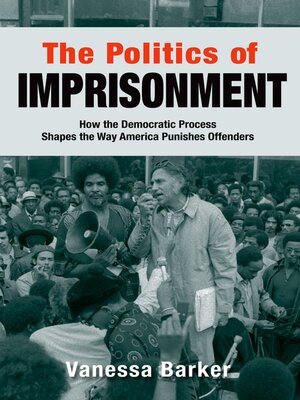The Politics of Imprisonment
ebook ∣ How the Democratic Process Shapes the Way America Punishes Offenders · Studies in Crime and Public Policy
By Vanessa Barker

Sign up to save your library
With an OverDrive account, you can save your favorite libraries for at-a-glance information about availability. Find out more about OverDrive accounts.
Find this title in Libby, the library reading app by OverDrive.



Search for a digital library with this title
Title found at these libraries:
| Library Name | Distance |
|---|---|
| Loading... |
The attention devoted to the unprecedented levels of imprisonment in the United States obscure an obvious but understudied aspect of criminal justice: there is no consistent punishment policy across the U.S. It is up to individual states to administer their criminal justice systems, and the differences among them are vast. For example, while some states enforce mandatory minimum sentencing, some even implementing harsh and degrading practices, others rely on community sanctions. What accounts for these differences? The Politics of Imprisonment seeks to document and explain variation in American penal sanctioning, drawing out the larger lessons for America's overreliance on imprisonment. Grounding her study in a comparison of how California, Washington, and New York each developed distinctive penal regimes in the late 1960s and early 1970s—a critical period in the history of crime control policy and a time of unsettling social change—Vanessa Barker concretely demonstrates that subtle but crucial differences in political institutions, democratic traditions, and social trust shape the way American states punish offenders. Barker argues that the apparent link between public participation, punitiveness, and harsh justice is not universal but dependent upon the varying institutional contexts and patterns of civic engagement within the U.S. and across liberal democracies. A bracing examination of the relationship between punishment and democracy, The Politics of Imprisonment not only suggests that increased public participation in the political process can support and sustain less coercive penal regimes, but also warns that it is precisely a lack of civic engagement that may underpin mass incarceration in the United States.







